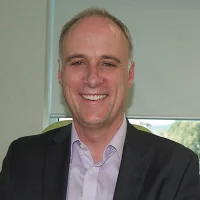Articles / 30% of GPs have seen bad outcomes from non-specialist cosmetic surgery but only 1% reported to AHPRA

Almost one-third of GPs have seen negative outcomes from cosmetic surgical procedures performed by doctors who were not formally trained in surgery, but only 1% of GPs reported these cases to AHPRA.
30% of 338 GPs answered ‘Yes’ to Healthed’s recent survey question: ‘Have you ever seen a patient with a negative outcome following a cosmetic surgical procedure done by a non-specialist cosmetic surgeon’.
“This is the first time I’ve seen any data like this so it’s incredibly valuable,” Associate Professor Nicola Dean, the president of the Australian Society of Plastic Surgeons, told Healthed.
“That’s a huge burden of health problems in the community. And it’s significantly contributing to patient illness in the community, but also the work of GPs,” she says.

31% of 249 GPs who answered an additional survey question said they referred their patient to a qualified plastic surgeon to have a revision of the cosmetic surgical outcome.

Only 1% of 280 GPs said they had reported these incidents to AHPRA in the Healthed survey.
GPs are busy treating patients and have limited time on their hands to report to AHPRA, particularly if they don’t feel that AHPRA is going to provide solutions, says Dean.
“The fact that 30% of the GP had had to refer to a plastic surgeon shows that the GP certainly understand the difference between Australian Medical Council-accredited surgeons, and those who are not proper surgeons, and that they value the expertise that specialist plastic surgeons have in terms of being able to revise problematic cases,” says Dean.

As part of its efforts to regulate cosmetic surgery, the AHPRA said on 1 September that it would write to all Australian doctors urging them to report dodgy cosmetic surgery.
“I was shocked by what I saw at the end of last year in the media because we had not heard of any really serious issues in cosmetic surgery at that point,” Anne Tonkin, the chair of the Medical Board of Australia, said.
A review by AHPRA and the Medical Board of Australia found that 177 complaints were made to AHPRA about cosmetic surgery over three years. Three cautions were issued. No complaints led to tribunal hearings or emergency suspension.
“Anyone who is trying to fix what has been called a botched operation, who feels that the standard of practice by that other practitioner represents a serious risk to the public, really should be thinking about whether they have an obligation to report,” says Ms Tonkin.
Around 59% of 246 GPs who answered Healthed’s survey question said the patients who had a bad outcome from non-specialist cosmetic surgery did not feel like they received competent medical care. (9% of GPs said patients in this situation thought they did receive competent care, and 32% of GPs said their patient was not sure.)
“It’s really quite frightening that 60% of those patients felt that they didn’t receive competent medical care during their cosmetic surgery procedure,” says Dean. “Every Australian deserves competent medical care. And it’s outrageous in modern Australia, that patients are receiving suboptimal medical care and being put at risk.”

Cosmetic surgical procedures, such as liposuction and breast implantation, can currently be performed by doctors who only have a basic medical degree in Australia. (Plastic surgeons are required to undergo eight to 12 years of additional training.)
Mainstream coverage of poorly executed cosmetic procedures by doctors without formal specialist training over the last year has led to AHPRA to consider tighter regulations.
These media investigations prompted a class action lawsuit against one cosmetic surgery clinic. Patients who came forward to speak to the media alleged that the cosmetic surgical procedures left them with deformities and psychological trauma.

A total of 406 GPs responded to Healthed’s email survey, which opened on 13 September 2022. GPs were allowed to skip questions, which is why each question has a different number of GP participants.
Felicity Nelson is a freelance journalist & editor. Yasmin Clarke is a freelance data analyst & journalist.

Premature Ovarian Insufficiency – The New Guidelines

Inhaler Devices
Very overestimated
Moderately/slightly overestimated
Quite accurate
Moderately/slightly underestimated
Very underestimated
Listen to expert interviews.
Click to open in a new tab
Browse the latest articles from Healthed.
Once you confirm you’ve read this article you can complete a Patient Case Review to earn 0.5 hours CPD in the Reviewing Performance (RP) category.
Select ‘Confirm & learn‘ when you have read this article in its entirety and you will be taken to begin your Patient Case Review.
Webcast TONIGHT
POTS – What You Need to Know